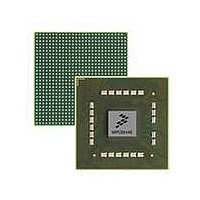MPC8544VTALF Freescale Semiconductor, MPC8544VTALF Datasheet - Page 860

MPC8544VTALF
Manufacturer Part Number
MPC8544VTALF
Description
MPU POWERQUICC III 783-PBGA
Manufacturer
Freescale Semiconductor
Datasheets
1.MPC8544VTALF.pdf
(117 pages)
2.MPC8544VTALF.pdf
(2 pages)
3.MPC8544VTALF.pdf
(1340 pages)
Specifications of MPC8544VTALF
Processor Type
MPC85xx PowerQUICC III 32-Bit
Speed
667MHz
Voltage
1V
Mounting Type
Surface Mount
Package / Case
783-FCPBGA
Processor Series
MPC85xx
Core
e500
Data Bus Width
32 bit
Maximum Clock Frequency
667 MHz
Maximum Operating Temperature
+ 105 C
Mounting Style
SMD/SMT
Data Ram Size
32 KB
I/o Voltage
1.8 V, 3.3 V
Interface Type
I2C, HSSI, DUART
Minimum Operating Temperature
0 C
Lead Free Status / RoHS Status
Lead free / RoHS Compliant
Features
-
Lead Free Status / Rohs Status
Lead free / RoHS Compliant
Available stocks
Company
Part Number
Manufacturer
Quantity
Price
Company:
Part Number:
MPC8544VTALF
Manufacturer:
Freescale Semiconductor
Quantity:
10 000
Company:
Part Number:
MPC8544VTALFA
Manufacturer:
Freescale Semiconductor
Quantity:
10 000
- Current page: 860 of 1340
- Download datasheet (12Mb)
Enhanced Three-Speed Ethernet Controllers
15.6.1.1
This section describes the media-independent interface (MII) intended to be used between the PHYs and
the eTSEC.
establish eTSEC module connection with a PHY.
An MII interface has 18 signals (including the TSECn_MDC and TSECn_MDIO signals), as defined by
the IEEE 802.3u standard, for connecting to an Ethernet PHY.
15.6.1.2
This section describes the reduced media-independent interface (RMII) intended to be used between the
PHYs and the GMII MAC. The RMII is a reduced-pin alternative to the IEEE802.3u MII. The RMII
reduces the number of signals required to interconnect the MAC and the PHY from a maximum of 18
signals (MII) to 10 signals. To accomplish this objective, the data paths are halved in width and clocked at
twice the MII clock frequency, while clocks, carrier sense and error signals have been partly combined.
For 100 Mbps operation, the reference clock operates at 50 MHz, whereas for 10 Mbps operation, the
clock remains at 50MHz, but only every 10th cycle is used.
of the reduced media-independent interface and the signals required to establish an eTSEC’s connection
with a PHY. The RMII is implemented as defined by the RMII Specification of the RMII Consortium, as
of March 20, 1998.
15-128
1
The management signals (MDC and MDIO) are common to all of the Ethernet controllers’ connections
in the system, assuming that each PHY has a different management address.
eTSEC
Figure 15-117
Media-Independent Interface (MII)
Reduced Media-Independent Interface (RMII)
MPC8544E PowerQUICC III Integrated Host Processor Family Reference Manual, Rev. 1
depicts the basic components of the MII including the signals required to
Receive Data Valid (TSECn_RX_DV)
Carrier Sense Output (TSECn_CRS)
Transmit Enable (TSECn_TX_EN)
Transmit Clock (TSECn_TX_CLK)
Receive Clock (TSECn_RX_CLK)
Transmit Data (TSECn_TXD[3:0])
Receive Data (TSECn_RXD[3:0])
Management Data Clock1 (MDC)
Figure 15-117. eTSEC-MII Connection
Transmit Error (TSECn_TX_ER)
Receive Error (TSECn_RX_ER)
Management Data I/O1 (MDIO)
Collision Detect (TSECn_COL)
Figure 15-118
depicts the basic components
Ethernet
10/100
PHY
Freescale Semiconductor
Medium
Related parts for MPC8544VTALF
Image
Part Number
Description
Manufacturer
Datasheet
Request
R
Part Number:
Description:
Manufacturer:
Freescale Semiconductor, Inc
Datasheet:
Part Number:
Description:
Manufacturer:
Freescale Semiconductor, Inc
Datasheet:
Part Number:
Description:
Manufacturer:
Freescale Semiconductor, Inc
Datasheet:
Part Number:
Description:
Manufacturer:
Freescale Semiconductor, Inc
Datasheet:
Part Number:
Description:
Manufacturer:
Freescale Semiconductor, Inc
Datasheet:
Part Number:
Description:
Manufacturer:
Freescale Semiconductor, Inc
Datasheet:
Part Number:
Description:
Manufacturer:
Freescale Semiconductor, Inc
Datasheet:
Part Number:
Description:
Manufacturer:
Freescale Semiconductor, Inc
Datasheet:
Part Number:
Description:
Manufacturer:
Freescale Semiconductor, Inc
Datasheet:
Part Number:
Description:
Manufacturer:
Freescale Semiconductor, Inc
Datasheet:
Part Number:
Description:
Manufacturer:
Freescale Semiconductor, Inc
Datasheet:
Part Number:
Description:
Manufacturer:
Freescale Semiconductor, Inc
Datasheet:
Part Number:
Description:
Manufacturer:
Freescale Semiconductor, Inc
Datasheet:
Part Number:
Description:
Manufacturer:
Freescale Semiconductor, Inc
Datasheet:
Part Number:
Description:
Manufacturer:
Freescale Semiconductor, Inc
Datasheet:











